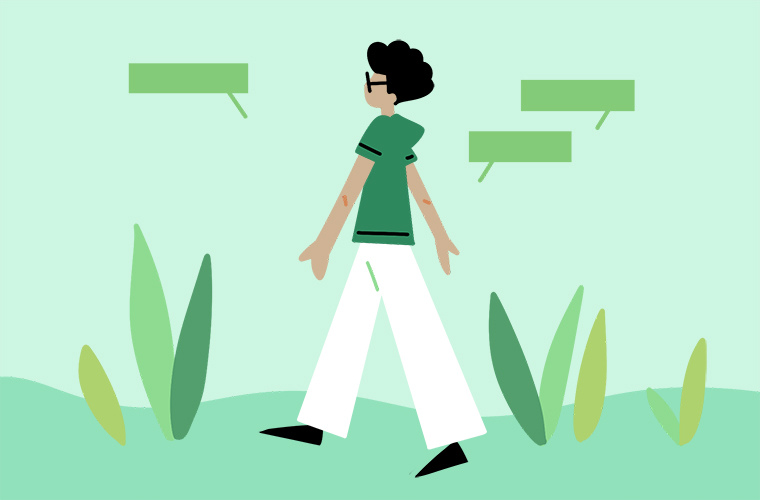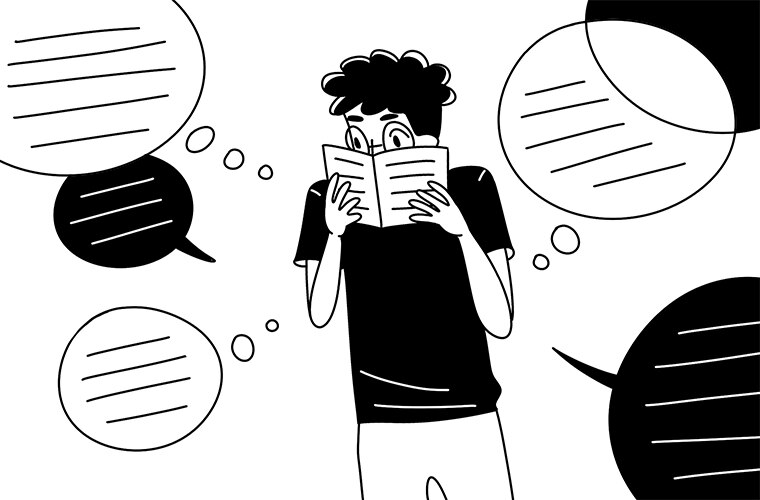由于格式问题此试题可能会出现乱码的情况
为了方便您阅读请点击右上角的全屏查看
2018邯郸市中考英语模拟试题
卷I(选择题,共80分)
听力部分(第一节)
I.听句子,选出句子中所包含的信息。(共5小题,每小题1分,计5分)
1. A. weak B. week C. wake
2. A. fourth B. fourteenth C. fortieth
3. A. show up B. speed up C. stay up
4. A. Tom likes playing games, and so does Jerry.
B. Jerry likes playing games, but Tom doesn’t.
C. Tom likes playing games, but Jerry doesn’t.
5. A. Lucy can draw well, for she is old enough.
B. Lucy can’t draw well because she is young.
C. Lucy can draw well, although she is young.
II.听句子,选出该句的最佳答语。(共5小题,每小题1分,计5分)
6. A. Good idea! B. It’s too long. C. You are beautiful.
7. A. How great! B. That’s all. C. Not at all.
8. A. That’s a pity! B. Here you are. C. Sorry to hear that.
9. A. Near the park. B. By bike. C. Three days ago.
10. A. The same to you. B. Congratulations! C. Thank you.
III.听对话和问题,选择正确的选项。(共8小题,每小题1分,计8分)
 11. (邯郸中考英语)What weather does the man like?
11. (邯郸中考英语)What weather does the man like?


A B C
12. What is the boy’s favorite sport?



A B C
13. Where is the red car made?
A. In America. B. In Japan. C. In China.
~~~~~~~~~~~~~~~~~~~~~~~~~~~~~~~~~~~~~~~~~~~~~~~~~~~~~~~~~~~~~~~~
14. How does the woman feel now?
A. Hot. B. Cold. C. Warm.
15. How will they go back home?
A. By bus. B. By taxi. C. On foot.
~~~~~~~~~~~~~~~~~~~~~~~~~~~~~~~~~~~~~~~~~~~~~~~~~~~~~~~~~~~~~~~~
16. What is the man looking for?
A. A shirt. B. A sweater. C. A jacket.
17. What color does the man prefer?
A. White. B. Blue. C. Green.
18. How much will the man pay?
A. 20 yuan. B. 100 yuan. C. 120 yuan.
IV.听短文和问题,选择正确答案。(共7小题,每小题1分,计7分)
19. Which meal is very quick for many people?
A. Breakfast. B. Lunch. C. Supper.
20. Where do the office workers often have lunch?
A. At school. B. In the restaurant. C. In sandwich bars.
21. What do the people have for afternoon tea?
A. Cakes and a cup of tea. B. Bread and a cup of tea. C. Cakes and sandwiches.
~~~~~~~~~~~~~~~~~~~~~~~~~~~~~~~~~~~~~~~~~~~~~~~~~~~~~~~~~~~~~~~~
22. What’s the speaker’s job?
A. A driver. B. A teacher. C. A guide.
23. When will they have breakfast?
A. At 6:45. B. At 7:15. C. At 7:45.
24. Where is the parking lot?
A. Next to the hotel. B. Beside the hotel. C. Behind the hotel.
25. What is needed for lunch?
A. A blue ticket. B. The guide’s license. C. The room card.
笔试部分
V.单项选择(共15小题,每小题1分,计15分)
26. (邯郸中考英语)I only had ________ egg ad some milk for breakfast today.
A. a B. an C. the D. /
27. This dictionary is your sister’s. Please give it to ________.
A. me B. you C. her D. him
28. I like orange best. What’s your favorite ________?
A. food B. fruit C. snack D. color
29. Li Ming goes to school ________ his father’s car every day.
A. by B. in C. on D. for
30. The price of the car is too ________ for me. I can’t afford it.
A. expensive B. cheap C. high D. low
31. Time to go to bed. ________ your toys, Bill.
A. Put away B. Put up C. Put out D. Put off
32. The boy in the corner ________ be Tom. He’s gone to China.
A. may B. must C. can’t D. mustn’t
33. It was late. He opened the door ________ so that he wouldn’t wake his mother up.
A. quietly B. heavily C. loudly D. angrily
34. I’m glad to hear you ________ to a new house next week.
A. move B. moved C. have moved D. will move
35. No noise, please. Your brother ________ his homework in the next room.
A. does B. is doing C. did D. has done
36. Your bedroom ________ so clean, I should praise you.
A. sounds B. smells C. tastes D. looks
37. When I saw her on the way here, he ________ a magazine.
A. reads B. is reading C. was reading D. will read
38. Our foreign teacher, Andy, ________ English since 2001.
A. has taught B. is teaching C. will teach D. teaches
39. I will go out to play with you as soon as my homework ________.
A. finishes B. is finished C. will be finished D. was finished
40. ---Can you tell me ________?
---I remember it was on March 2.
A. how you returned the books B. why you bought so many books
C. when you returned the books D. where you bought so many books
VI.(邯郸中考英语)完形填空(共10小题,每小题1分,计10分)
Have you heard of this old Spanish(西班牙) saying "Tomorrow is often the busiest day of the week"? How many times have we put off our dreams 41 tomorrow? Our dreams should not, and cannot 42 us. We have to go for them now!
Tomorrow is not promised. Nobody likes to talk 43 death, but everybody is going to die at one point. No one knows the day or the hour. Therefore(因此), today is all we 44 . Don't go to your tomb(坟墓) with unrealized dreams. Make the 45 to go after every dream, big or small right now.
Don't let fear win. It is one of the biggest dream killers. Many people can achieve amazing things if only they aren't 46 . Fear is not real. It is a product of thoughts you create. So if you want to achieve your dream, don’t let fear 47 you.
Take action to realize your dream. For example, you can dream about writing a great play but it's 48 going to happen unless you actually put the pen to paper. In other words, 49 don’t work unless you do.
There are so many amazing opportunities(机会). 50 do you get to them? Follow your dream. Go after what you want, doors that you couldn’t imagine will open up for you.
41. A. before B. after C. until D. while
42. A. wait for B. care for C. stand for D. pay for
43. A. with B. into C. about D. down
44. A. give B. forget C. lose D. have
45. A. decision B. mind C. use D. mistake
46. A. excited B. afraid C. surprised D. happy
47. A. allow B. remind C. stop D. keep
48. A.ever B. always C. often D. never
49. A. dreams B. plays C. pens D. papers
50. A. What B. How C. When D. Where
VII.阅读理解(共15小题,每小题2分,计30分)
A
I have a lovely daughter, whose name was Eloise. She is only nine years old. I picked her up from school and went to the supermarket for a few things. I was hoping to be in and out quickly.
I found a short line with just one person ahead(在……前面) of me. It was an elderly woman, and she was paying for her things with only change(零钱). It took a long time. After a whole day at work, I began to lose patience.
But then I watched the young clerk(职员). He helped her count her change, ever so tenderly(体贴地) taking it from her shaking hands. I listened to him repeatedly say to her, “Yes, madam.” When she asked the clerk if she had enough money to buy a bag, he told her she did. Then he went two lines over to get one for her. Never once did this clerk get annoyed(生气的) or roll(滚动) his eyes. He was patient and kind.
As I was watching him, I saw Eloise was, too. I realized that my daughter was learning an important lesson from a complete stranger.
After the woman was finished, the clerk began ringing up my things and thanked me for my patience. I thanked him, too. I found the manager and told him about the clerk’s kindness and patience.
Then we left the supermarket with a full cart(手推车), but also with a heart full of thankfulness for such an important lesson. Sometimes just one act of kindness is all it takes to encourage others to do the same. Being kind to others can also make you feel good.
51. What does the writer’s daughter do?
A. A clerk. B. A student. C. A manager. D. A teacher.
52. At first, the writer was ______________ with the elderly woman.
A. angry B. pleased C. careful D. impatient
53. From Paragraph(段落) 3, we can infer(推断) that the elderly woman ______________.
A. lived a comfortable life B. might not too have much money
C. was a friend of the clerk’s D. didn’t want to pay for her things
54. The clerk rang up the writer’s things _______________.
A. after I found the manager B. before I counted my change
C. after the elderly woman finished shopping D. before the elderly woman was finished
55. What was the important lesson the writer referred to(指)?
A. Be kind and patient with others. B. It’s hard to be a good clerk.
C. We should learn from strangers. D. Don’t look down on anyone.
B
For thousands of years, poetry(诗歌) has been one of the favorite types(种类) of literature(文学) in China. There were many famous poets in Chinese history, and many of their poems are still read and loved today.
Recently, a popular TV show — Chinese Poetry Competition attracts(吸引) many people. Now let’s interview some people and listen to what they said.
I like Wu Yishu very much. She studies at the High School Afliated(附属) to Fudan University in Shanghai. She came out on top. She can recite(背诵) more than 2000 Chinese poems fluently(流利地). I really admire(钦佩) her knowledge of poems. She is tall and beautiful, and she always stays calm(镇定的) whether the questions are easy or hard. |
|
The woman that impresses(给……以深刻印象) me is Bai Ruyun. She comes from a village in Xingtai. She is a farmer. She is not rich and she is badly ill in hospital, but she has been so confident(自信的) in herself since she began to read and recite Chinese poems. |
|
Among the competitors(选手), I like Wang Zilong best. He is 34 years old. He teaches Chinese in Shijiazhuang College. He said when he was only two years old, his parents began to teach him to recite Chinese poems. |
|
Do you know the young boy? He is Ye Fei, 13, from Anqing No. Two Middle School in Anhui. In one competition, he answered all the questions correctly. Now he is a young star in his school because of his love of Chinese Poems. |
|
56. Who came out on top in the Chinese poetry Competition?
A. Wu Yishu. B. Bai Ruyun. C. Wang Zilong. D. Ye Fei.
57. Where does Bai Ruyun come from?
A. Shanghai. B. Xingtai. C. Shijiazhuang. D. Anqing.
58. How long has Wang Zilong learned recite Chinese poems?
A. 34 years. B. 2 years. C. 36 years. D. 32 years.
59. What do we know about Ye Fei?
A. He can recite more than 2000 Chinese poems fluently.
B. He learned Chinese poems when he was three years old.
C. He studied in Anqing No. Two Middle School in Anhui.
D. He answered all the questions correctly in all competition
60. Which of the following is TRUE?
A. Ye Fei is a thirteen-year-old student in Anhui. B. Wang Zilong teaches maths in Xingtai college.
C. Bai Ruyun is from a rich family in Shijiahuzang. D. Wu Yishu feels nervous if the questions are hard.
C
This afternoon, when I was looking for a self-improvement(自我修养) book, I found an aged folder(文件夹). In this folder, there were some of the examination papers I’d taken during my pre-university days. They were on economics(经济学), a subject that I didn’t really like much then.
I laughed at the silly mistakes I made as I looked through the papers. And memories of the past came to my mind. I saw myself sitting at one of the study tables, working hard for some of my life goals. Back then, it was popular for most students to set life goals, because they thought it was most important.
It was during those times that I first started to set goals for myself. I didn’t know much about goal setting then. I didn’t use any goal tracking(跟踪) tools, either. All I knew was that I had to go to university. There was no other way that I could give myself. To go through my lecture(演讲) notes, I didn’t take breaks. For more revision with my classmates, I stayed back late. One time, I missed the school lock-out hours and I had to climb school gates in order to leave. It was perhaps this attitude(态度) that ignited my decision to go through what I had to do to get this far.
Yes, it may have been hard. But the sweet taste of victory experienced at the point of receiving my final results was so wonderful that I would never forget it for the rest of my life.
I closed the folder and dropped it into the dustbin(垃圾箱) in the room. It’s time to get kicking with my next goal. And by writing this, I know I’m getting closer.
61(邯郸中考英语). When the author(作者)looked through the papers in the folder, he ________.
A. looked for a self-improvement book B. laughed at the silly mistakes he made
C. dropped it into the dustbin right away D. sat at the table and set life goals again
62. When the author first started to get goals for himself, he ________.
A. didn’t need to enter university B. didn’t use any goal tracking tools
C. was sure that he would win the victory D. learned a lot from a self-improvement book
63. Why did the author stay back late after school?
A. To be prepared to enter university. B. To learn more about goal setting.
C. To make his teacher pay attention to him. D. To get the chance of climbing school gates.
64. The underlined word “ignited” means ________ in the passage.
A. reduced(减少) B. balanced(平衡) C. questioned D. raised
65. What can we learn about the author from the last paragraph?
A. He regularly(规律地) tidies his room. B. He’s not quite good at goal setting
C. He is ready for the next goal. D. He hated those papers in the folder.
卷II(非选择题,共40分)
听力部分(第二节)
VIII.听短文填空(共5小题,每小题1分,计5分)
Information Sheet 66. The classes in London English School are very ______________________. 67. At this school, English is taught in the ______________________ ways. 68. Children of all levels and all ______________________ can come to the school. 69. Children have classes only on ______________________. 70. For more information, please ______________________ the school. |
笔试部分
IX.任务型阅读(共5小题,每小题2分,计10分)
As is well known, saying “no” is not easy at all. But sometimes we have to learn to say “no”. To learn to say “no”, we have to first understand what’s stopping us about it. There are some common reasons why people find it hard to say “no”.
You want to help others. You are a kind soul(灵魂) at heart. You don’t want to turn the person away and you want to help when possible, even if it may take up your time.
Afraid of being rude. I was brought up under the idea that saying “no”, especially to people who are older, is rude. This thinking is common in Asian culture, where face-saving is important. It means not making others look bad or lose faces.
Wanting to be agreeable. At times, you find you are not in agreement. You don’t want to keep yourself away from the group, so you agree to do others’ requests(请求).
Fear of conflict(冲突). The person might be angry if you refuse him. This might lead to an ugly conflict. Even if there isn’t, there might be disagreement which might lead to bad effects(影响) in the future.
Fear of losing opportunities(机会). Sometimes, saying “no” means closing doors or losing opportunities. It may make you feel worried. For example, one of my friends was asked to work in another department(部门) in her company(公司). Since she liked her team, she didn’t want to go. However, she didn’t want to say “ no” as she felt it would affect her promotion(晋升) opportunities in the future.
71题完成句子;72~73题回答问题;74题找出并写下全文的主题句;75题将画线句子译成汉语。
71. In Asian culture, it is ______________________________ to say “no” to people who are older.
72. Why do you agree to do others’ requests?
___________________________________________________________________________________________.
73. What does saying “no” mean sometimes?
___________________________________________________________________________________________.
74. ___________________________________________________________________________________________.
75. ___________________________________________________________________________________________.
X.(邯郸中考英语)词语运用(共5小题,每小题1分,计5分)
It is necessary to relax ourselves after the exam. There are some kinds of 76. ______________(activity) for us to take part in. First of all, we can go for a 77. w______________ along the bank of the river. We can also go to the movies or listen to music. What’s more, joining in a sports club is a good 78. ____________(choose), which can keep us healthy. For example, 79. p______________ football in the afternoon may relax ourselves. Above all, we should arrange(管理) our time 80. ______________(proper) and live a regular(规律的) life. I hope all of us can have a wonderful time.
XI.基础写作。(20分)
A) 连词成句(共5小题,每小题1分,计5分)
81. you, seen, giraffes, have
____________________________________________________________________________________________?
82. the, they, tallest, are, animals
____________________________________________________________________________________________.
83. to, they, us, friendly, are
____________________________________________________________________________________________.
84. eat, usually, leaves, they, green
____________________________________________________________________________________________.
85. me, can, make friends with, they
____________________________________________________________________________________________?
B) (邯郸中考英语)书面表达(15分)
86. 以前的家庭大部分孩子都是独生子女,但是现在好多家庭中的独生子女都有了弟弟或妹妹,有个弟弟或妹妹好还是不好,针对这一话题,王梅和李明有不同的意见。

假如你是王梅或李明,请围绕你的观点,结合自己的亲身经历,说出2~3条理由来支持自己的想法。
参考词汇:feel lonely, share one’s happiness, look after
要求:1.只需表达一个人的观点即可;
2.短文中不得涉及真实的人名、校名和地名;
3.词数:80个左右,(开头已给出,不计入总词数)。
Hello, everyone! My name is_____________________________________________________________________
_______________________________________________________________________________________________________
_______________________________________________________________________________________________________
______________________________________________________________________________________
卷I (选择题,共80分)
01-05 BACAC 06-10 ACBAB 11-15 BCABA 16-20 BCCBC
21-25 ACBCA 26-30 BCDBC 31-35 ACADB 36-40 DCABC
41-45 CACDA 46-50 BCDAB 51-55 BDBCA 56-60 ABDCA
61-65 BBADC
卷II(非选择题,共40分)
VIII. 66. interesting 67. newest 68. ages 69. weekends 70. call / ring / phone
IX.71. rude / impolite / not polite
72. Because I don’t want to keep myself away from the group.
73. Closing doors or losing opportunities.
/ Sometimes, saying “no” means closing doors or losing opportunities.
74. There are some common reasons why people find it hard to say “no”.
75. 当你拒绝他时,他可能会生气。
(阅卷教师根据学生答题情况灵活掌握,酌情给分。)
X.76. activities 77. walk 78. choice 79. playing 80. properly
XI.A) 81. Have you seen giraffes?
82. They are the tallest animals.
83. They are friendly to us.
84. They usually eat green leaves.
85. Can they make friends with me?
B) 86. One possible version:
Hello, everyone! My name is Li Ming. I think having a brother or a sister is pretty good. First, if I have a brother, I can have a friend to play with. I won’t feel lonely. I can share my happiness with him and also tell him my trouble. Second, being an elder brother, I will have some pressure. And I will make myself excellent to be an example of my brother. I will be better than before. Third, we can take care of my parents together when they are old. We can look after each other as well. So I want to have a younger brother. I think he will make my life more wonderful.
Hello, everyone! My name is Wang Mei. I don’t think having a brother or a sister is a pretty good. First, if I have a brother, he will play with my toys. He is very young. He will be too careless to break them. I will be very sad. Second, my parents will look after him more often. They can’t have enough time to care about me and my studies. Third, I must spend my time taking care of him when my parents are out. I can’t do anything I like to do. In a word, I don’t want to have a brother. I want to be the only child at my home.
2

孔乙己是贫困潦倒的知识分子。在书中,孔乙己是一个知识分子,满口“之乎者也”,但是他很穷,还窃书,说过“读书人的事,怎么能叫窃,”被人嘲笑,他...

自然界产生氧气的化学方程式:光合作用的反应式为6CO2+12H2O→C6H12O6+6O2+6H2O。包括光反应和暗反应两个过程。需要具备光...

有的高校没有条件,只要学业水平成绩都合格就可以,比如中国科学院大学。有的需要平常学习考试成绩,比如北京外国语大学要求高三第一学期期末成绩在全...

在四则运算中,表示计算顺序,在小括号之后、大括号之前;表示两个整数的最小公倍数;表示取未知数的整数部分;在函数中,表示函数的闭区间;在线性代...

济南开设的最好的职高学校有:济南方信集团职业高中、济南公共交通职业高中。济南市公共交通职业高级中学是由济南市公共交通总公司承办,业务属济南市...

实然:是说事物实际上就是这样的,但不同于现实性(现实性指其有合理性和客观性);应然:就是应该是怎么样的意思,比如说这件事,就应该是那样的结果...

地中海气候一种夏季炎热干燥、冬季温和多雨,雨热不同期的气候类型。地中海气候冬季受西风带控制,锋面气旋频繁活动,气候温和,最冷月的气温在4-1...

碱石灰,又称钠石灰,碱石灰是白色或米黄色粉末,疏松多孔,是氧化钙(CaO,大约75%),水(H₂O,大约20%),氢氧化钠(NaOH,大约3...